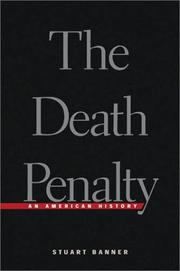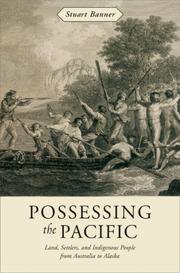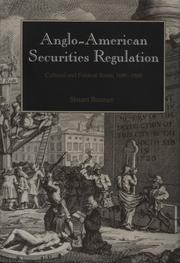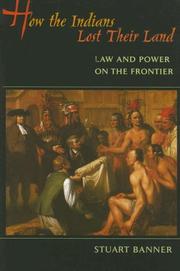| Listing 1 - 10 of 13 | << page >> |
Sort by
|
Book
ISBN: 0674058054 0674060822 9780674060821 9780674058057 Year: 2011 Publisher: Cambridge, MA
Abstract | Keywords | Export | Availability | Bookmark
 Loading...
Loading...Choose an application
- Reference Manager
- EndNote
- RefWorks (Direct export to RefWorks)
In America, we are eager to claim ownership: our homes, our ideas, our organs, even our own celebrity. But beneath our nation's proprietary longing looms a troublesome question: what does it mean to own something? More simply: what is property?The question is at the heart of many contemporary controversies, including disputes over who owns everything from genetic material to indigenous culture to music and film on the Internet. To decide if and when genes or culture or digits are a kind of property that can be possessed, we must grapple with the nature of property itself. How does it originate? What purposes does it serve? Is it a natural right or one created by law?Accessible and mercifully free of legal jargon, American Property reveals the perpetual challenge of answering these questions, as new forms of property have emerged in response to technological and cultural change, and as ideas about the appropriate scope of government regulation have shifted. This first comprehensive history of property in the United States is a masterly guided tour through a contested human institution that touches all aspects of our lives and desires.Stuart Banner shows that property exists to serve a broad set of purposes, constantly in flux, that render the idea of property itself inconstant. Despite our ideals of ownership, property has always been a means toward other ends. What property signifies and what property is, we come to see, has consistently changed to match the world we want to acquire.
Property -- United States -- History. --- Right of property -- United States -- History. --- Property --- Right of property --- Law - U.S. --- Law, Politics & Government --- Law - U.S. - General --- History --- History. --- Law and legislation --- Economics --- Possession (Law) --- Things (Law) --- Wealth --- E-books --- Primitive property

ISBN: 0674007514 0674010833 Year: 2002 Publisher: Cambridge (MA) : Harvard University Press,
Abstract | Keywords | Export | Availability | Bookmark
 Loading...
Loading...Choose an application
- Reference Manager
- EndNote
- RefWorks (Direct export to RefWorks)
Capital punishment --- United States --- History --- Social conditions --- Moral and ethical aspects --- U.S. --- CAPITAL PUNISHMENT --- SOCIAL CONDITIONS --- MORAL AND ETHICAL ASPECTS --- HISTORY
Book
ISBN: 0190254572 1299456936 0199930309 0199389721 0199930295 9780199930302 9780199930296 0199974691 9780190254575 9781299456938 Year: 2013 Publisher: Oxford New York Oxford Univ Press
Abstract | Keywords | Export | Availability | Bookmark
 Loading...
Loading...Choose an application
- Reference Manager
- EndNote
- RefWorks (Direct export to RefWorks)
The impact of antitrust law on sports is in the news all the time, especially when there is labour conflict between players and owners, or when a team wants to move to a new city. And if the majority of Americans have only the vaguest sense of what antitrust law is, most know one thing about it - that baseball is exempt. This book illuminates the series of court rulings that resulted in one of the most curious features of the US legal system: baseball's exemption from antitrust law.
Baseball --- Sports --- Antitrust law --- Law and legislation --- Field sports --- Pastimes --- Recreations --- Base-ball --- Recreation --- Athletics --- Games --- Outdoor life --- Physical education and training --- Ball games
Book
ISBN: 9780190623043 9780190623050 9780190623067 0190623055 0190623063 0190623047 Year: 2017 Publisher: New York, N.Y. Oxford University Press
Abstract | Keywords | Export | Availability | Bookmark
 Loading...
Loading...Choose an application
- Reference Manager
- EndNote
- RefWorks (Direct export to RefWorks)
What is the difference between a speculator and a gambler? This simple question, reminiscent of an old joke, lies at the heart of one of the most fraught issues within the American economy. And with it come more questions, equally distressing: how can we tell the difference between a good investment and a bad one, and encourage the former while guarding against the latter? If we can't prevent over-speculation, what moral code can be applied when it leads to the loss of thousands of people's savings, jobs, and security? The aftermath of the 2007 financial crisis prompted many of these questions, butthis is not by any means the first time they have been raised, nor will it be the last. In Speculation, author Stuart Banner offers a sweeping historical examination of this debate, showing that, not only have courts always struggled to draw a line between investment and gambling, but that the passionate arguments produced on all sides have almost certainly been made before. While many today argue that we need to prohibit certain risky transactions, others respond by citing the benefits of robust markets and the dangers of over-regulation. This debate has been a perennial feature of American history, and many of these same sentiments have been expressed, on both sides, after every financial downturn since the 1790s. The Panic of 1837, the speculative boom of the roaring twenties, and the real estate bubble of the early 2000s are all emblematic of the difficulty in differentiating sober from reckless speculation. These episodes have generated deep ambivalence, yet Americans' faith in investment and - by extension - the stock market has always rebounded quickly after even the most savage downturns. Indeed, the speculator on the make is a central figure in the folklore of American capitalism. Engaging and accessible, Speculation: A History synthesizes a complicated but important dilemma that intersects with critical themes at the heart of the nation - the ability of our courts to ensure justice and protection; the fallibility of our economy's promise of financial success; the moral conundrum inherent in valuing those who produce goods over those who speculate, and yet enjoying the fruits of speculation. The history of this struggle will not only prove invaluable for improving today's economy, but will also impact how we understand a fundamental aspect of the American identity.
Investments --- Capital market --- Speculation --- Investissements --- Marché financier --- Spéculation --- Law and legislation --- Droit --- Money market. Capital market --- History.

ISBN: 0674020510 9780674020511 0674010833 9780674010833 0674007514 9780674007512 Year: 2022 Publisher: Cambridge, MA
Abstract | Keywords | Export | Availability | Bookmark
 Loading...
Loading...Choose an application
- Reference Manager
- EndNote
- RefWorks (Direct export to RefWorks)
The death penalty arouses more passion than almost any other issue. This account of the death penalty in the United States tells the story of dramatic changes, over four centuries, in the ways capital punishment has been administered and experienced.
Capital punishment --- Abolition of capital punishment --- Death penalty --- Death sentence --- Criminal law --- Punishment --- Executions and executioners --- History. --- Moral and ethical aspects --- United States --- Social conditions.
Book
ISBN: 0674020499 9780674020498 9780674030824 0674030826 Year: 2008 Publisher: Cambridge, Mass. Harvard University Press
Abstract | Keywords | Export | Availability | Bookmark
 Loading...
Loading...Choose an application
- Reference Manager
- EndNote
- RefWorks (Direct export to RefWorks)
A collection of curious tales questioning the ownership of airspace and a reconstruction of a truly novel moment in the history of American law, Banner's book reminds us of the powerful and reciprocal relationship between technological innovation and the law.
Aeronautics --- Airspace (Law) --- Air rights --- Air space (Law) --- Property --- Real property --- Law and legislation --- Transport law --- Air traffic --- United States --- United States of America

ISBN: 0674020529 9780674020528 9780674026124 0674026128 Year: 2021 Publisher: Cambridge, MA
Abstract | Keywords | Export | Availability | Bookmark
 Loading...
Loading...Choose an application
- Reference Manager
- EndNote
- RefWorks (Direct export to RefWorks)
During the nineteenth century, British and American settlers acquired a vast amount of land from indigenous people throughout the Pacific, but in no two places did they acquire it the same way. Stuart Banner tells the story of colonial settlement in Australia, New Zealand, Fiji, Tonga, Hawaii, California, Oregon, Washington, British Columbia, and Alaska. Today, indigenous people own much more land in some of these places than in others. And certain indigenous peoples benefit from treaty rights, while others do not. These variations are traceable to choices made more than a century ago--choices about whether indigenous people were the owners of their land and how that land was to be transferred to whites. Banner argues that these differences were not due to any deliberate land policy created in London or Washington. Rather, the decisions were made locally by settlers and colonial officials and were based on factors peculiar to each colony, such as whether the local indigenous people were agriculturalists and what level of political organization they had attained. These differences loom very large now, perhaps even larger than they did in the nineteenth century, because they continue to influence the course of litigation and political struggle between indigenous people and whites over claims to land and other resources. Possessing the Pacific is an original and broadly conceived study of how colonial struggles over land still shape the relations between whites and indigenous people throughout much of the world.
Land settlement --- Indigenous peoples --- Aboriginal peoples --- Aborigines --- Adivasis --- Indigenous populations --- Native peoples --- Native races --- Ethnology --- Resettlement --- Settlement of land --- Colonies --- Land use, Rural --- Human settlements --- History. --- Land tenure --- Legal status, laws, etc. --- Oceania --- Northwest, Pacific --- Cascadia Region --- Oregon Country --- Pacific Northwest --- Oceanica --- South Pacific --- South Pacific Ocean Region --- South Pacific Region --- South Sea Islands --- South Seas --- Southwest Pacific Region --- Islands of the Pacific --- Colonization --- Race relations. --- Moana Nui, Te --- Moana Oceania --- Te Moana Nui
Book
ISBN: 0197556523 0197556507 0197556515 Year: 2021 Publisher: New York : Oxford University Press,
Abstract | Keywords | Export | Availability | Bookmark
 Loading...
Loading...Choose an application
- Reference Manager
- EndNote
- RefWorks (Direct export to RefWorks)
In 'The Decline of Natural Law', Stuart Banner explores a fundamental change in the way American lawyers thought about the law. Until the late 19th century, lawyers understood the law in part as something found in nature, the way we think of scientific laws today. After the change, by contrast, lawyers understood the law as something entirely made by people, especially by judges. It explains the reasons for this change and how it affected the legal system.
Natural law. --- Common law. --- Religion and law. --- Law --- History. --- Law and religion --- Anglo-American law --- Law, Anglo-American --- Customary law --- Law of nature (Law) --- Natural rights --- Nature, Law of (Law) --- Rights, Natural --- History and criticism --- Religious aspects

ISBN: 052162231X 0521521130 0511523041 Year: 2002 Publisher: Cambridge Cambridge University Press
Abstract | Keywords | Export | Availability | Bookmark
 Loading...
Loading...Choose an application
- Reference Manager
- EndNote
- RefWorks (Direct export to RefWorks)
This book examines the regulation of the earliest securities markets in England and the United States, from their origins in the 1690s until the 1850s. Professor Banner argues that during the reign of Queen Anne a complex and moderately effective body of regulatory control was already extant, reflecting widespread Anglo-American attitudes toward securities speculation. He uses both traditional legal materials (including court opinions, statutes, and legal treatises) and as a broad range of non-legal sources (novels, broadsides, contemporary engravings) to examine contemporary images of stock markets and speculation practices, and he shows that securities regulation has a much longer ancestry than is often supposed. Insights from both legal and cultural history are utilised to explain how popular thought about the securities market was translated into regulation and, reciprocally, how that regulation influenced market structures and the activities of speculators.
Securities --- Great Britain --- History --- United States --- Arts and Humanities --- Money market. Capital market --- anno 1600-1699 --- anno 1700-1799 --- anno 1800-1899 --- England --- History. --- Blue sky laws --- Capitalization (Finance) --- Investment securities --- Portfolio --- Scrip --- Securities law --- Underwriting --- Investments --- Investment banking --- Law and legislation --- United States of America

ISBN: 0674020537 9780674020535 067402396X 9780674023963 0674018710 9780674018716 0674018710 9780674018716 Year: 2009 Publisher: Cambridge, MA
Abstract | Keywords | Export | Availability | Bookmark
 Loading...
Loading...Choose an application
- Reference Manager
- EndNote
- RefWorks (Direct export to RefWorks)
Between the early seventeenth century and the early twentieth, nearly all the land in the United States was transferred from American Indians to whites. How did Indians actually lose their land? Stuart Banner argues that neither simple coercion nor simple consent reflects the complicated legal history of land transfers. Instead, time, place, and the balance of power between Indians and settlers decided the outcome of land struggles.
Indians of North America --- Indian land transfers --- Property --- Land tenure --- Agrarian tenure --- Feudal tenure --- Freehold --- Land ownership --- Land question --- Landownership --- Tenure of land --- Land use, Rural --- Real property --- Land, Nationalization of --- Landowners --- Serfdom --- Land transfers, Indian --- Land titles --- Indian inspectors --- Land tenure. --- Legal status, laws, etc. --- Government relations. --- History. --- Law and legislation --- Government policy --- Land transfers --- Registration and transfer --- United States --- Politics and government. --- Race relations. --- Legal status, laws, etc --- Government relations --- History
| Listing 1 - 10 of 13 | << page >> |
Sort by
|

 Search
Search Feedback
Feedback About UniCat
About UniCat  Help
Help News
News